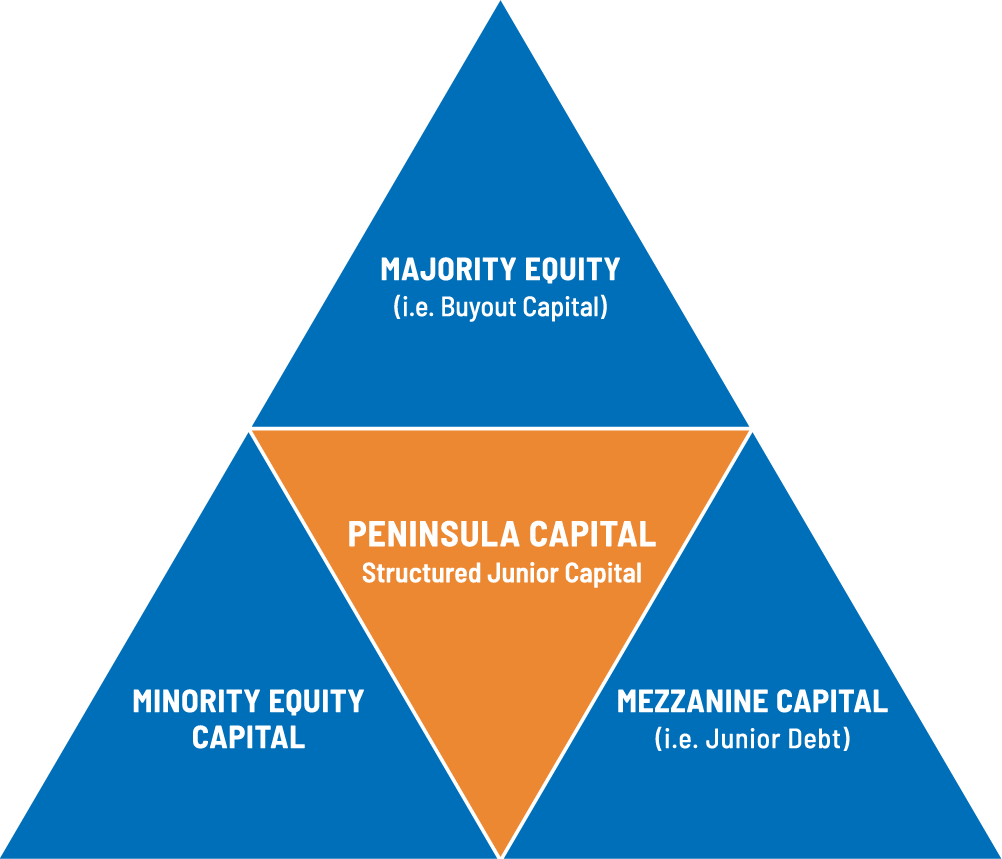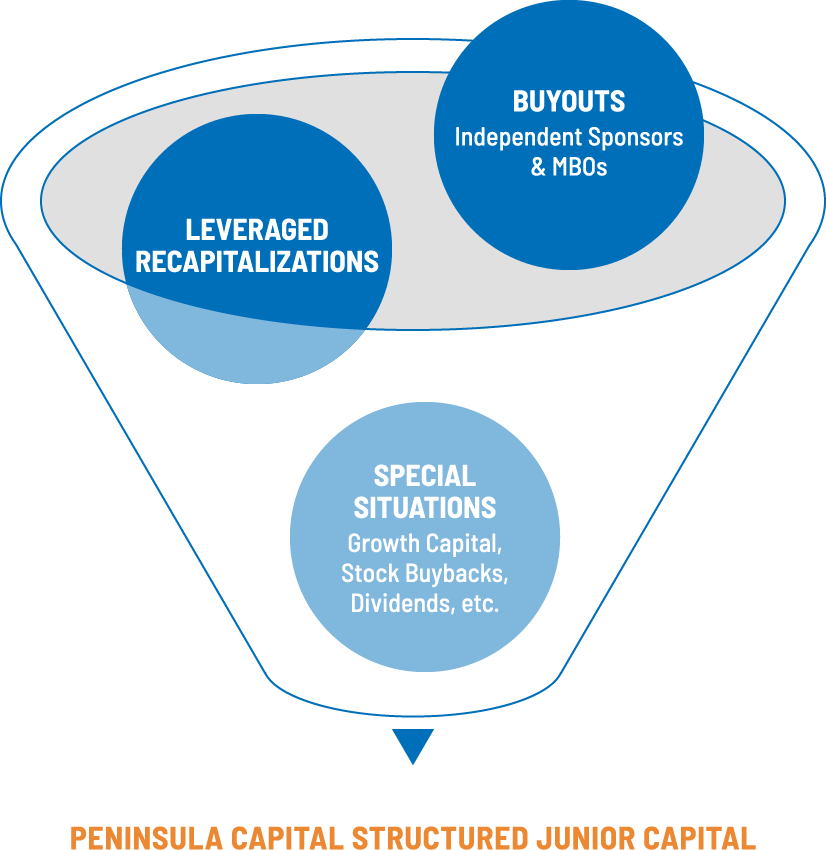Just Three Words — Endless Applications
What is Structured Junior Capital?
Structured Junior Capital is a catch-all term for equity and/or junior debt tranches structured specifically to address the funding requirements of a leveraged transaction.
What Types of Transactions Require It?
Buyouts and recapitalizations are the most common leveraged transactions that require one or more tranches of structured junior capital, but any transaction requiring more funding than is prudently available via senior borrowings is a candidate.
How are Investments Structured?
Based on the amount of capital being sought, the type of business, the availability of senior debt, preferences of other investors and expected future funding needs of the business, a junior capital solution is tailored to meet the specific transaction and business requirements. For most Peninsula Capital transactions, this takes the form of both an equity and junior debt (i.e., mezzanine or subordinated debt) tranche.
How is this Different Than Traditional Mezzanine or Buyout Capital?
In short, it’s broader in transactional scope and application. Most mezzanine capital investors are mostly (or entirely) subordinated debt lenders, and are often strictly minority equity investors. Buyout funds are nearly always majority equity investors, and typically not able, or willing, to also provide junior debt tranches. By contrast, structured junior capital includes all transactional funding needs, customized to the specific transaction’s requirements and participants’ preferences.
Why Peninsula Capital Partners Structured Junior Capital?
Peninsula Capital is one of the very few middle-market capital providers that supports the full spectrum of structured junior capital transactions, including minority or majority equity positions, participant or sponsor roles, and debt and equity capabilities as required by the transaction and participants’ goals and objectives.
We Span the Whole Capital Structure
Peninsula Capital’s Structured Junior Capital investment approach allows for customized funding solutions that span junior debt to majority equity positions, and everything in between. Our rare flexibility allows us fill a variety of capital structure roles, from being solely a subordinated debt investor, to a one-stop capital provider that funds all the equity and junior debt required to complete a transaction. We are equally capable of participating in a deal led by an independent sponsor or leading a transaction in a sponsorship role, depending upon what the situation requires.

We Cover the Full Range of Middle-Market Transactions
Peninsula Capital’s Structured Junior Capital investment approach is not limited to simply change-of-control transactions, but rather is applicable to any leveraged transaction requiring junior capital. From Independent Sponsor-led buyouts to leveraged recapitalizations to growth capital rounds, we can formulate an unique funding solution that is responsive the needs, objectives and preferences of the transaction and its participants.




